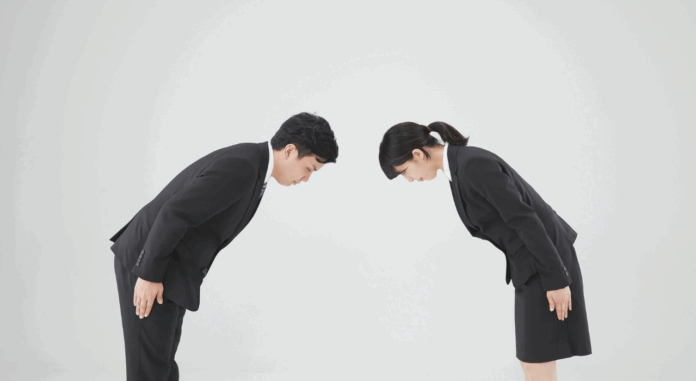Japan has a rich and structured business culture, shaped by long-standing values such as respect, harmony, and discipline. If you’re planning to work in Japan or interact with Japanese clients, it’s important to understand the key principles of Japanese business etiquette. You don’t need to be perfect—what matters most is your willingness to learn and show respect.
Here are some of the most common Japanese business manners that will help you navigate professional life in Japan.
1. Politeness and Respect Are Paramount
In Japanese business culture, treating everyone with respect—regardless of age or rank—is a fundamental expectation. For example, when attending a meeting with a client, it’s essential to be courteous even to the most junior staff member.
This reflects the broader cultural values of avoiding confrontation and maintaining harmony. Being polite is not just about using formal language; it’s about showing genuine consideration for others.
2. Business Card Etiquette (名刺 Meishi)
Even in today’s digital world, business card exchange remains a key ritual in Japanese business settings. The way you give and receive a business card says a lot about your professionalism and cultural awareness.
Here are a few key tips:
- Always offer and receive cards with both hands
- Take a moment to carefully look at the card you receive—front and back
- Place the card respectfully on the table during the meeting
- Use a proper cardholder (never stuff it into your pocket)
Treating someone’s business card with care is a way of showing respect for that person and their organization.
3. Mastering the Art of Bowing (お辞儀 Ojigi)
In Japan, bowing often replaces handshakes as a standard greeting. While there are many types of bows depending on context, even a simple, polite bow can make a good impression.
If a Japanese counterpart extends their hand, feel free to shake it. But if they bow, just follow their lead. You don’t need perfect form—what matters is showing effort and cultural sensitivity.
4. Punctuality Is a Sign of Respect
Time management is taken very seriously in Japan. Being late for a meeting is seen as disrespectful to others’ time.
Best practices include:
- Arrive at least 5 minutes early
- Inform the other party immediately if you’re going to be late
- Be mindful of the meeting’s scheduled end time
punctuality equals professionalism in Japan.
5. Nonverbal Communication Matters
Japanese communication often relies heavily on nonverbal cues and indirect expressions. This can include body language, silence, subtle gestures, and tone of voice.
As a newcomer, it may feel difficult to read between the lines at first. But over time, you’ll start to pick up on these unspoken signals. Observing how Japanese colleagues behave is key to understanding what’s really being communicated.
Final Tips: Observe, Adapt, and Show Respect
If you’re unsure about a particular business custom, the best approach is to observe those around you and follow their lead. This not only helps you avoid faux pas but also demonstrates your willingness to adapt.
Ultimately, Japanese professionals are often more impressed by your effort and respectful attitude than by strict rule-following. Cultural sensitivity goes a long way in building trust and long-term business relationships.
This article is based on the following video conversation we recorded and has been revised and expanded for clarity and depth.
🎥 Common Japanese business manners | Work in Japan
If you found this helpful, don’t forget to subscribe to our YouTube channel for more career advice, insider tips, and job market insights—especially if you’re navigating a tech career in Japan!
🌟 Interested in working in Japan’s tech industry?
Explore job opportunities on our IT Job Board for Foreign Engineers
















